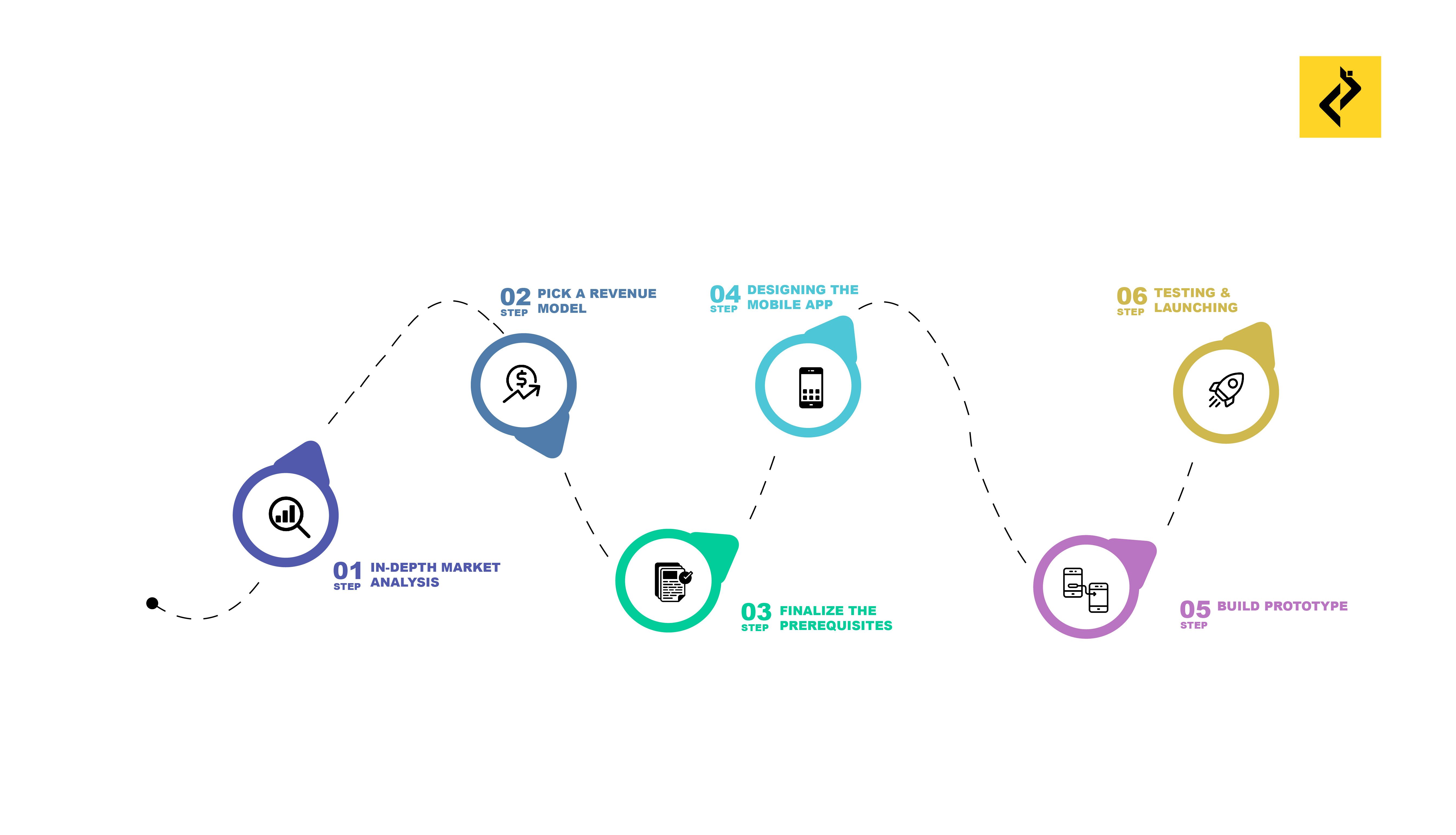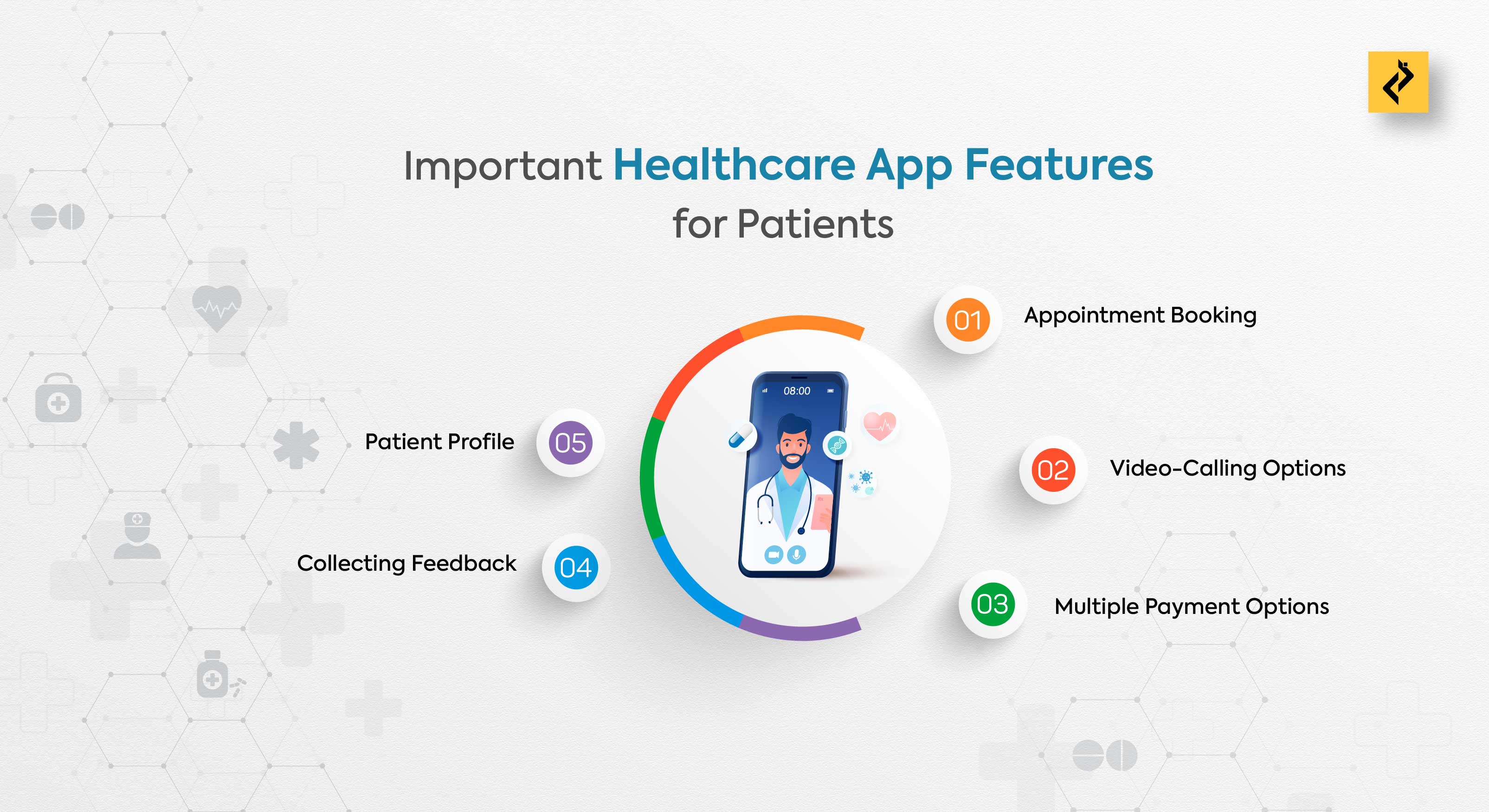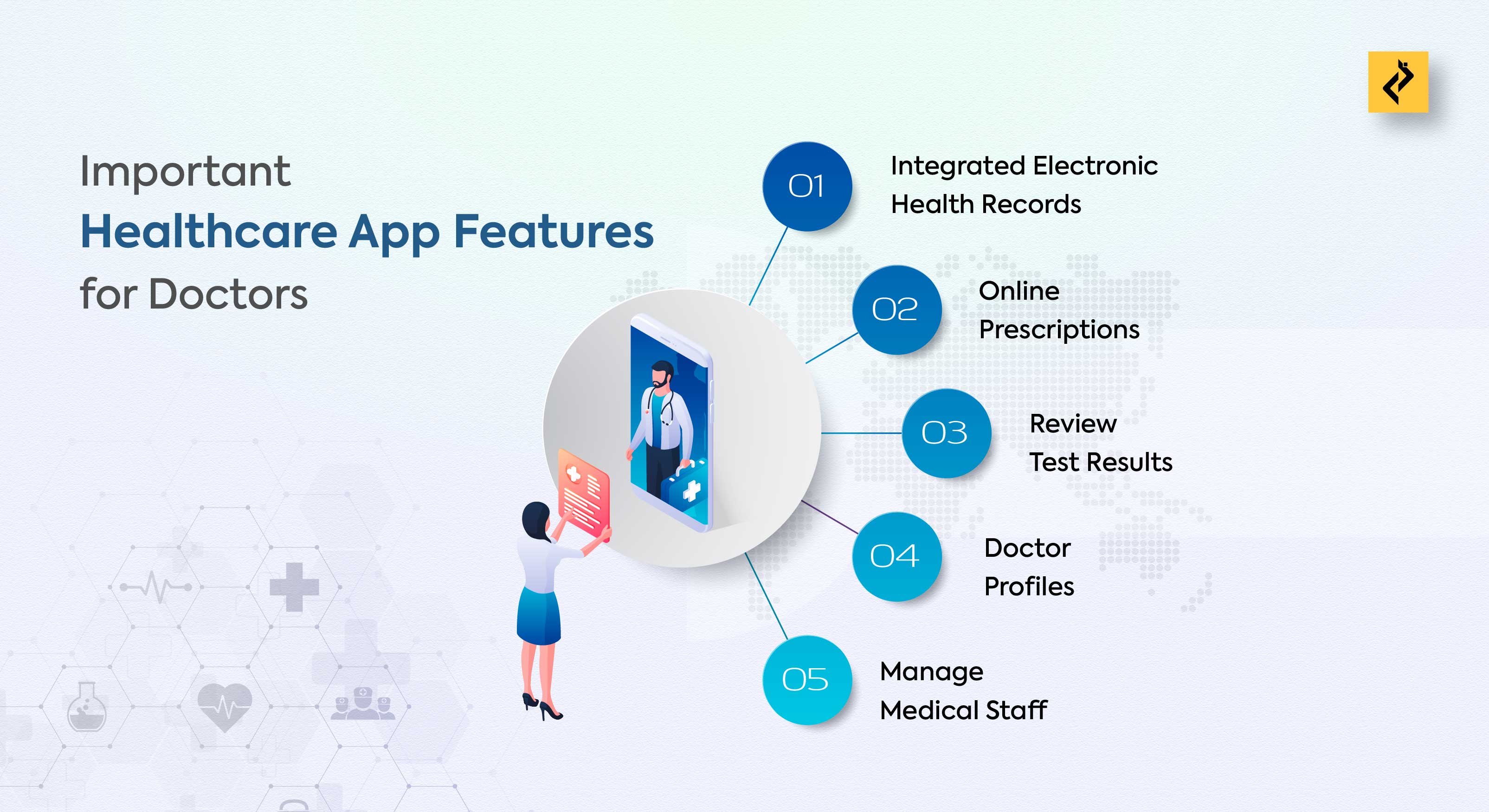How To Build A Healthcare Consultation App Like Zocdoc
4 Min read

In the last decade or so, numerous healthcare app ideas have taken the industry by storm. And in the process, they have made healthcare more accessible and efficient, allowing users to book appointments, look up doctors, and receive medical advice with ease. But with newer forms of technology entering the market in 2023, developing a healthcare mobile application has become more advanced.
So, let's take a step-by-step look at how you can build a healthcare mobile app with the latest available tools.
Building a Healthcare Mobile App in 7 Easy Steps
 In the age of on-demand healthcare app development, you must have a planned strategy in place before you even delve into the project. And to make things easier for you, here is a chronological breakdown of what goes into building a healthcare mobile app like Zocdoc.
In the age of on-demand healthcare app development, you must have a planned strategy in place before you even delve into the project. And to make things easier for you, here is a chronological breakdown of what goes into building a healthcare mobile app like Zocdoc.
1. Conduct an In-depth Market Analysis
Of course, you are free to choose a research strategy that suits your business goals the best. But if you're unsure how to go about it, here are some pointers that could help
- Start by picking a research method
Most common methods are surveys, either online or in-person. But you can also opt for interviews, focus groups and secondary research if you wish.
- Ask some pertinent questions
Make sure to ask questions that tell you things about who your target audience is, what their needs are, who your competitors might be, what strengths and weaknesses they may have, the threats facing the market, and so on.
- Analyze the data you've gathered
Finally, by looking at the data you've gathered, you'll have a clear picture of what your healthcare mobile app should do for its audience.
2 Pick a Revenue Model
Again, there is a lot that you can choose from here. For instance, you can either charge your users per consultation or have them subscribe to your app's services on a monthly or yearly basis. You can also provide in-app purchases such as premium features for an extra fee.
Once you've settled on a revenue model, you will need to implement a payment process that suits the model. So, if you've chosen a subscription model, you may want to allow users to opt in for a recurring billing system that saves them the hassle of processing payments every time they use the app.
3 Finalize the Prerequisites
In this step, you will be specifying things like the domain, server and other prerequisites for each stage in advance. This way, you will be able to wave off the load from healthcare mobile app development consultants.
4 Designing the Healthcare Mobile App
This step is where you prepare the layout of your mobile app. Here, there are some things that you must keep in mind.
First and foremost, the app needs to be easy to use because the last thing you need is for your users to find it difficult to consult a doctor on it. Second, you need to make sure that the application is visually appealing so that you can catch the attention of your target audience.
And guess what? You only need to look at Pixbit Solutions’ vast collection of projects to find a great example - the Dermazone mobile app. Not only is this application visually appealing, but it is also user-friendly with some amazing features that let people book appointments for laser and cosmetic care in Dubai. Also, as an experienced software development company in Dubai, we were more than happy to help people find the best treatment plans as securely as possible.
5 Build a Prototype
With the design finalized, your healthcare mobile app is now ready for its prototype. This prototype will let you know what improvements you may need to make in the final version of the app to ensure that it fulfills its purposes.
6 Testing the App
Once your Minimum Viable Product (MVP) is ready, you have to test its functionality. Here, you'll be looking for bugs and other signs that tell you if your users can access all features of the app without any trouble.
For further market study, you may also consider having a beta version of your app prepared. You can make this version available to just a small group of users who will get to try out newer features before they are officially launched.
7 Launching the App
Now, this is the defining moment - the launch of your mobile app. But before you do that, be sure to have a few things all set:
- A Marketing Strategy
Create a buzz around your app way in advance so that when the app
- Consider a Soft Launch
This is not strictly necessary, but if you feel the need for it, you can release your healthcare mobile app to a select few groups of users and gauge their reactions. Then, you can make any necessary changes in your app and go for a full launch.
- Ensure Compatibility with App Stores
This is certainly a no-brainer, but before you launch the app, do make sure it adheres to every guideline specified by your chosen app store.
Some Must-Have Patient Features for Your App
Being well-versed in the intricacies of custom healthcare app development, our experts at Pixbit Solutions can tell you what features your app must have for patients.

- Appointment Booking
Letting your users book appointments through your app is the simplest medical service you can provide. You can let the patients register on your app, pay for a consultation before or after they see the doctor and streamline the process of scheduling the appointment.
- Video-Calling Options
A medical consultation app should have a video-calling feature that allows users to connect with their doctors remotely. Such a feature can help prevent unnecessary rushes at clinics and allow patients who live far away from a medical centre to access quality healthcare.
- Multiple Payment Options
If your mobile app is anything like Pixbit Solutions’ Dermazone app, it is sure to benefit from having multiple payment options. With the amount of online payment methods and currencies present around the world, this is also a crucial step in attracting users from all walks of life.
- Collecting Feedback
It goes without saying that feedback is the backbone of any successful service. Be it positive or negative, your app must allow users to leave their reviews and ratings for in-app medical services so that other users may see them and find what they are looking for.
- Patient Profile
Provide your users with a patient profile that they can view and/or edit if necessary. You can also make it so that a user is prompted to share this profile with their doctor for a smoother consultation experience.
Important Healthcare App Features for Doctors
For doctors, your healthcare mobile app can provide the following features.

- Integrated Electronic Health Records
Providing telemedicine services becomes easier for doctors if they have access to electronic health records. But there is a catch to this. While processing health records, your app must guarantee secure data storage due to the sensitive nature of such information. This way, you can assure your users of good privacy and confidentiality practices.
- Online Prescriptions
Allow doctors to provide prescriptions directly on the mobile app. The app can also let them electronically sign the prescriptions to lend more authenticity to the process.
- Review Test Results
Doctors can be given the option of ordering medical tests and reviewing the results through the app. The clinic staff can also use this feature to share the results with the patient through the systems of the healthcare mobile app.
- Doctor Profiles
Just like with patients, doctors too can be allowed to create a profile for themselves. This can showcase their specialties, the ratings and reviews they've received, and other details.
- Manage Medical Staff
Finally, healthcare apps need not be limited to just medical services. It can also be used to manage staff schedules and assign responsibilities in a clinic or hospital.
Bring Your Healthcare App to Life with Pixbit Solutions
Currently, the healthcare sector is in the midst of an arms race for user-friendly mobile applications. So, to ensure that you do not compromise on its quality, you must hire a top-notch development company to design your app.
Enter Pixbit Solutions - the best custom healthcare app development company out there for the job. With our experts leading your project, you can rest assured that you will receive excellent satisfaction with the products we deliver. We are one of the top mobile & web app development companies, experts in iOS, Android, e-commerce, CMS development , and more.
So, what’s your big idea for a healthcare mobile app? Tell us all about it and we can help!
Share on
Have an idea that needs to go mobile? Launch it with us!
Have an idea that needs to go mobile? Launch it with us!
Let's Talk
Have an idea ?
Let's make it happen
Tell us your business aspirations, and let's craft a custom solution that drives business growth, ensuring satisfaction and exceeding your goals with precision.
Let's Talk